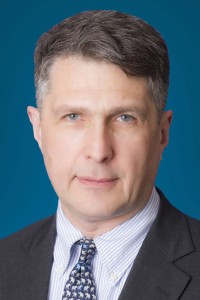Alum Books Podcast: Crisis in Ukraine
-
-
slice.mit.edu
- 1
Filed Under
Recommended
 Eugene Rumer PhD ’88, author of Conflict in Ukraine
Eugene Rumer PhD ’88, author of Conflict in Ukraine
When Boris Nemtsov, an outspoken critic of Vladimir Putin and Russian policy on Ukraine, was murdered on a bridge in Moscow in February, the outlook that Eugene Rumer PhD ’88 had on Putin’s Russia changed dramatically.
“I was shocked,” says Rumer, whose new book, Conflict in Ukraine, was published by MIT Press that month. “I was in a state of shock and confusion for some days. What it tells us, and it’s something that’s really new to my thinking about Russia, is that it’s really unstable.”
“We tend to think about these kinds of situations happening in countries that don’t have stable political systems,” Rumer, a senior associate and the director of Carnegie’s Russia and Eurasia Program, says in this month’s Alumni Books Podcast. “We just didn’t think about Russia as being as dangerous a place for opposition politicians, certainly establishment opposition politicians…this is a new situation in Russia—I dare say it’s a wake-up call for some in the ruling circles as well.”
In his new book, Rumer and co-author Rajon Menon take what they term a “first cut at explaining the context, causes, and consequences of Ukraine 2014,” a crisis which unfolded in dramatic fashion only weeks after the closing ceremonies of the 2014 Sochi Olympics, a few hundred miles away.
Since he completed the book last fall, of course, the crisis has continued to unfold, but “has sort of plateaued,” says Rumer.
“The one factor that perhaps we did not do justice to in the book…is how unprepared everyone has been and how everything that’s been happening throughout these really turbulent months has been a product of improvisation.”
Asked how his MIT education factored into his career path, Rumer explains, “I finished [at MIT] in 1988…soon after I started I found myself to be a failed Sovietologist. That said, the history of the place doesn’t change, the analytical skills that we need to apply don’t change, my study of –at the time in the defense and arms control program, of some of the fundamentals of nuclear strategy and arms control – all that comes in handy.”
Rumer’s devotion is evident in the book’s opening pages. He dedicated his portion of the book to his thesis advisor, Professor Stephen M. Meyer.
Listen to the complete podcast here. Listen to past books podcasts with novelists, professors, and entrepreneurs by visiting MITAA on Soundcloud. Have a good book to recommend, written either by you or a classmate? Tell us about it.








Comments
Eliot J. Pearlman
Thu, 04/16/2015 3:37am
Greetings from Kyiv (Kiev), where I have been running a NGO for the past 13 years running a NGO.
I doubt if any of my Ukrainian colleagues, who have either lived through the past 30-plus years as adults or even the youngsters, who have recently lived through the two Maidan expressions of hope have been shocked.
The press has been filled with stories of murder in downtown Moscow of lawyers: human rights lawyers, a tax lawyer (surely not our own Congress)- or human rights activists.
It has only gotten a bit more sophisticated to remove the opposition: not always are the troops called out to shoot as President Kuchma was suggested to do by Yanukovich in the Orange Revolution and what happen here in February 201\4 at Maidan by Yanukovich with snipers (purported to be either Ukrainian special police of special Russian forces, but a good head shot will do in a prison, in a hallway, or on a bridge close to the Kremlin.
Some feel that we are living through the dark period before WW2, where there is a heavily armed dictator as a neighbor.
In any event, I will buy the book.
Eliot